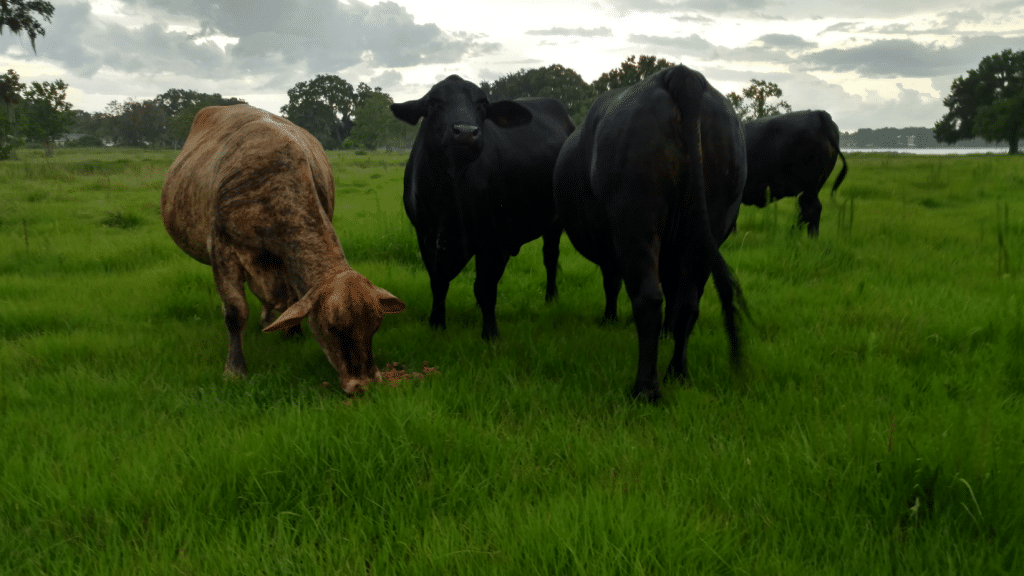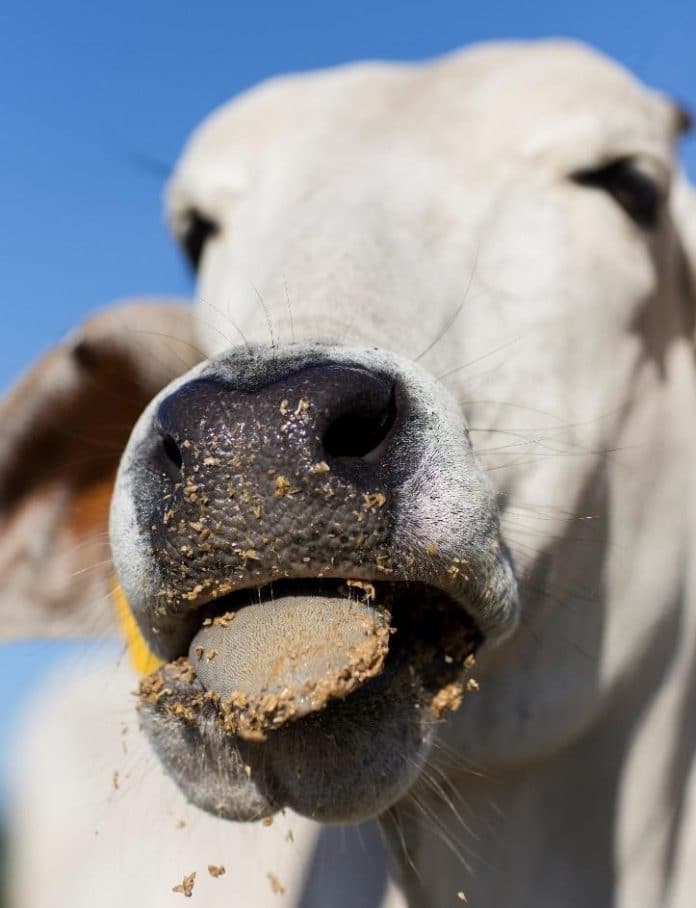Cattle Benefits us in many ways
by Laura H. Bennett
UF/IFAS Pasco, Hernando, and Sumter
Multi-County Livestock Agent
Florida cattle ranches help your life in ways beyond providing beef; ranches provide ecosystem services.
“Ecosystem services” is a term used to describe the multitude of benefits that an entity provides to society. The most evident ecosystem service is providing habitat for wildlife, particularly grassland birds. You may not know that cattle also help reduce our food waste in many ways. Unsold or stale bakery products provide nutrition for cattle. Orange pulp and peels left behind from Florida orange juice production is dried and pelleted to make an excellent feed source for cattle. Brewers’ and distillers’ grains are useful as well. There are many leftovers from food, fiber, and ethanol production used to feed cattle, many of which are regional.
As they eat these “leftovers,” cattle help minimize the amount of food that would otherwise go to a landfill. Waste from food, fiber and fuel production is often processed by companies, and then purchased by ranches to supplement their cattle. That food can come from trimmings, culling or processing or from food that might be past its best-by date.
Consider that 86% of the feed that livestock eat globally consists of feed materials that are not edible for humans. When a good portion of that also happens to be waste that must go elsewhere, it makes an even more impactful statement. Thus, a sustainable food system relies on cattle.
Cattle often graze on land that’s unsuitable for crop production. While doing so, they “upcycle” lower-quality plants and by products into high-quality protein for human consumption. Upcycling could be defined as turning trash into treasure, nutritionally speaking.
The United Nations Food and Agriculture Organization reports that livestock eat over 2.1 billion tons of waste from human food, fiber and biofuel production, annually. In the United States, large food manufacturers divert 77% of their food waste to animal feed, which is a great way to recycle unwanted food. Our U.S. dairies alone consume up to 306 million pounds of food waste daily.
In addition to their cattle eating otherwise-wasted food, Florida cattle ranches provide many ecosystem services from which humans benefit. We may not always see these benefits, but they help our environment.
Ranches provide water catchment and filtration, brush control, air purification and carbon sequestration.
You can fish, hunt and enjoy eco-tourism activities on ranches such as eco-safaris, event venues, and educational tours.
Ranches also support services such as nutrient cycling, water cycling (rainfall on ranchlands can filter through the soil and recharge groundwater levels), soil formation (from the decay of excess forage at the end of a season) and photosynthesis (from plant growth in wetlands, woods and pasture on the ranch). These processes maintain the conditions for life on Earth.
One of the greatest benefits is that Florida ranches sequester, or store, carbon. Well-managed grazing systems can reduce our carbon in the atmosphere and help mitigate climate change.
Bahiagrass, which is our main forage, or fodder, used on cattle ranches in Florida, can trap carbon in its roots, which can extend many feet below the soil surface. Bahia that is grazed and managed for pasture using best management practices produces the most prolific root system. That’s a win for the cattle and for the environment.
Providing habitat for wildlife is more important than ever in Florida. The mosaic of habitats on ranches allows wildlife to thrive. In addition to pasture, Florida ranches have woodlands and wetlands that house countless wildlife species, many of which are endangered. Many wildlife species prefer this diversity of habitat and do not survive if land is only thick brush, weeds and trees. When you combine wildlife habitat with the other ecosystem services, the dollar value of ecosystem services in Florida is estimated at $4.6 billion annually.
It’s likely that few of us consider the array of benefits ranches provide. Their cattle eat food that might go to waste. Ranches store carbon, which would otherwise pollute the air we breathe, and they add to our ability to preserve the environment – all vital services. The beef provided is only part of the picture.
Laura Bennett is the Livestock and Forage Management Agent for UF/IFAS Extension Pasco, Hernando, and Sumter Counties. Contact her [email protected].


